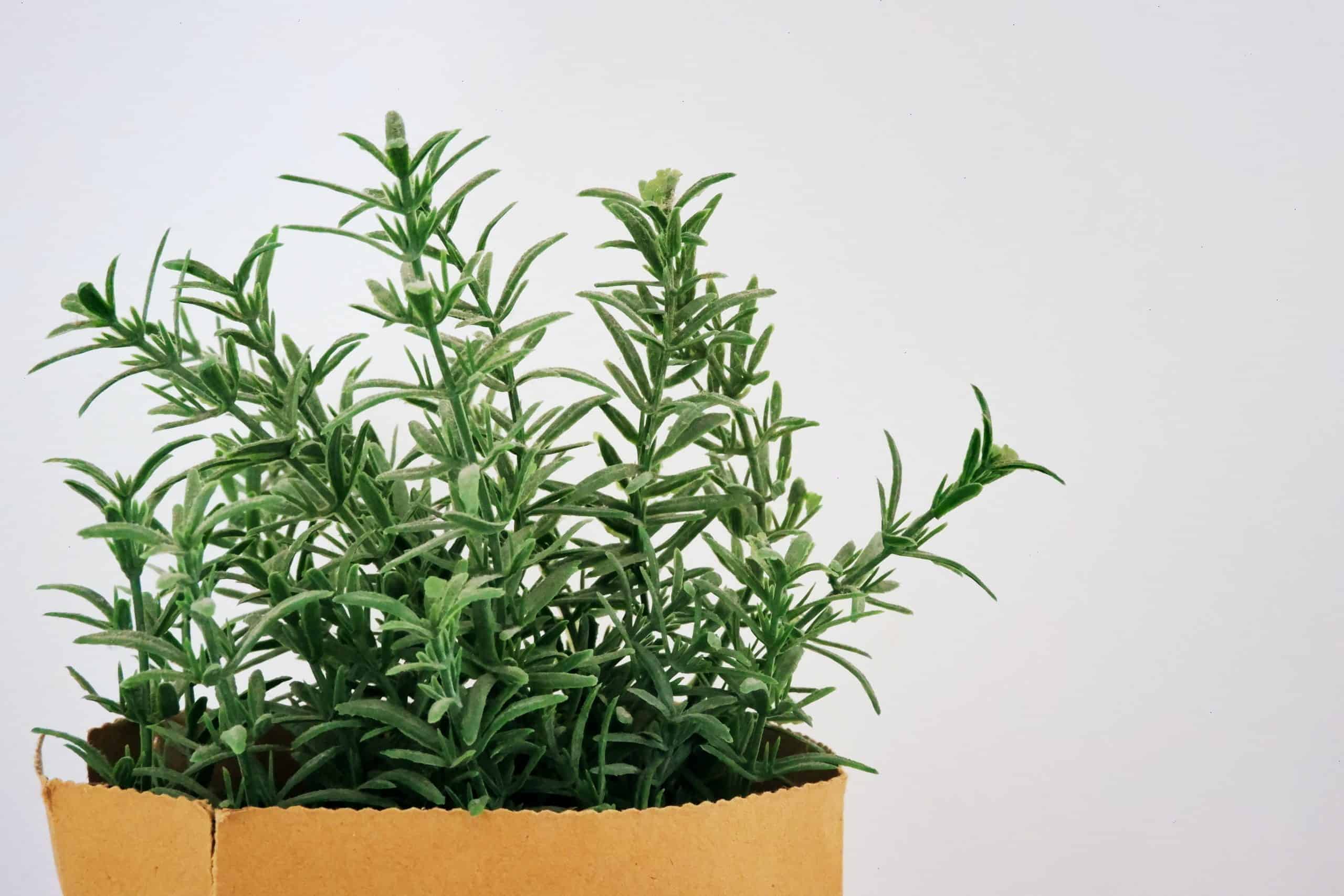Home>Types of Gardening>Edible Gardening>What Can I Substitute Rosemary With


Edible Gardening
What Can I Substitute Rosemary With
Published: January 30, 2024
Discover the best substitutes for rosemary in your edible gardening endeavors. Explore alternative herbs to use and enhance your culinary creations.
(Many of the links in this article redirect to a specific reviewed product. Your purchase of these products through affiliate links helps to generate commission for Chicagolandgardening.com, at no extra cost. Learn more)
Table of Contents
Introduction
Edible gardening is a rewarding and fulfilling endeavor that allows individuals to cultivate fresh, flavorful herbs and spices right at home. Among the plethora of herbs commonly grown in home gardens, rosemary stands out as a versatile and aromatic herb that adds depth and fragrance to a wide array of dishes. However, there are times when this beloved herb may not be readily available. In such instances, knowing suitable substitutes for rosemary becomes invaluable for maintaining the intended flavor profile of a recipe.
Whether you're a seasoned gardener, a culinary enthusiast, or someone venturing into the world of edible gardening for the first time, understanding the alternatives to rosemary can expand your culinary horizons and ensure that your dishes remain as delectable as ever. From other herbs that offer similar flavor profiles to inventive spice blends and unexpected stand-ins, there are numerous options to consider when seeking a suitable replacement for rosemary.
In this comprehensive guide, we'll delve into the reasons for substituting rosemary, explore the best alternatives available, and provide insights into how these substitutes can be used to elevate the flavors of various dishes. By the end of this article, you'll be well-equipped to confidently navigate the world of rosemary substitutes, allowing you to seamlessly adapt your recipes without compromising on taste or aroma. So, let's embark on this flavorful journey and uncover the delightful substitutes that await your culinary exploration.
Why Substitute Rosemary?
Rosemary is a beloved herb renowned for its distinctive fragrance and robust flavor, making it a staple in numerous culinary creations. However, there are compelling reasons why one might seek alternatives to this popular herb. Accessibility is a primary consideration, as fresh rosemary may not always be readily available, particularly in regions with limited access to diverse herbs and spices. Additionally, seasonal variations and fluctuations in market availability can impact the consistent supply of fresh rosemary, prompting the need for reliable substitutes.
Furthermore, dietary restrictions and personal preferences can influence the decision to substitute rosemary. Individuals with specific dietary requirements or allergies may need to explore alternative herbs and spices to accommodate their needs while maintaining the intended flavor profile of a dish. Moreover, some individuals may simply prefer the flavor profile of certain substitutes, prompting them to opt for alternative herbs and spices in lieu of rosemary.
Another compelling reason to consider substitutes for rosemary is the opportunity for culinary experimentation and innovation. Embracing alternative herbs and spices can introduce new and intriguing flavor dimensions to dishes, offering a chance to diversify and elevate culinary creations. Whether it’s exploring unique herb blends or incorporating unexpected substitutes, the quest for rosemary alternatives presents an exciting avenue for culinary exploration.
By understanding the reasons behind the quest for rosemary substitutes, individuals can approach their culinary endeavors with flexibility and creativity, knowing that a myriad of flavorful alternatives are available to cater to diverse preferences, dietary needs, and culinary aspirations.
Best Substitutes for Rosemary
When seeking substitutes for rosemary, it’s essential to explore a range of herbs, spices, and other flavorful options that can seamlessly step in to provide similar aromatic and gustatory experiences. Whether you’re looking to maintain the herbaceous notes, earthy undertones, or pine-like essence that rosemary imparts, several alternatives can fulfill these sensory expectations. Let’s delve into some of the best substitutes for rosemary, each offering its own distinct flavor profile and culinary versatility.
- Thyme: With its earthy and slightly floral flavor, thyme serves as an exceptional substitute for rosemary, particularly in savory dishes. Its subtle minty and lemony undertones contribute to a delightful complexity, making it an ideal replacement for rosemary in various recipes, including roasted meats, stews, and marinades.
- Oregano: Known for its robust and zesty flavor, oregano can effectively stand in for rosemary, especially in Mediterranean and Italian cuisines. Its peppery and slightly bitter notes add depth to dishes, making it a versatile alternative for seasoning meats, vegetables, and pasta sauces.
- Sage: With its earthy and slightly peppery flavor, sage offers a compelling substitute for rosemary, particularly in dishes featuring poultry and pork. Its aromatic qualities and warm, camphor-like undertones make it a worthy contender for imparting richness and depth to various culinary creations.
While these herbs serve as excellent substitutes for rosemary, it’s important to consider alternative options that can infuse dishes with unique and unexpected flavors. From inventive spice blends to unconventional stand-ins, the world of culinary exploration offers a plethora of options to cater to diverse palates and preferences.
Herbs
When it comes to substituting rosemary in culinary endeavors, exploring a variety of herbs can unveil a world of delightful flavors and aromatic dimensions. Herbs play a pivotal role in enhancing the taste profiles of dishes, and identifying suitable alternatives to rosemary can elevate the culinary experience. Let’s delve into a selection of herbs that can effectively replace rosemary, offering their own unique nuances and sensory delights.
- Parsley: Known for its fresh and slightly peppery flavor, parsley can serve as a vibrant substitute for rosemary in certain dishes, particularly those where a hint of brightness and herbaceousness is desired. Its versatility makes it a valuable addition to salads, soups, and sauces.
- Tarragon: With its subtle anise-like flavor and hints of sweetness, tarragon presents an intriguing alternative to rosemary, especially in recipes calling for a delicate yet distinctive herb. Its nuanced profile complements seafood, poultry, and creamy sauces with finesse.
- Basil: Renowned for its sweet and slightly peppery notes, basil can offer a refreshing substitution for rosemary, particularly in dishes that benefit from a touch of aromatic freshness. Its association with Mediterranean cuisine makes it a versatile addition to pasta dishes, salads, and marinades.
Exploring these herbs as substitutes for rosemary can open up new avenues for culinary creativity, allowing individuals to tailor their dishes to suit specific flavor preferences and culinary themes. Whether seeking a hint of brightness, a touch of sweetness, or a burst of freshness, these herbs provide a diverse array of options to enhance the sensory experience of a wide range of culinary creations.
Spices
While herbs often take the spotlight in culinary discussions, spices hold their own allure, offering a rich tapestry of flavors and aromas that can seamlessly substitute for rosemary in various dishes. The world of spices is replete with options that can infuse culinary creations with depth, warmth, and complexity, presenting an enticing array of alternatives to traditional herb substitutions. Let’s explore a selection of spices that can effectively replace rosemary, enriching dishes with their distinct profiles and aromatic allure.
- Thyme: This versatile spice, with its earthy and slightly floral notes, can effectively stand in for rosemary, particularly in savory dishes. Its subtle minty and lemony undertones contribute to a delightful complexity, making it an ideal replacement for rosemary in various recipes, including roasted meats, stews, and marinades.
- Marjoram: With its gentle, sweet, and slightly floral flavor, marjoram offers a compelling alternative to rosemary, especially in dishes where a delicate yet aromatic herb is desired. Its affinity for enhancing the flavors of meats, vegetables, and soups makes it a versatile addition to a wide range of culinary creations.
- Savory: Known for its peppery and slightly bitter taste, savory can serve as an intriguing substitute for rosemary, particularly in recipes that call for a nuanced herb with a hint of piquancy. Its compatibility with beans, lentils, and roasted vegetables makes it a valuable addition to hearty and savory dishes.
By incorporating these spices as substitutes for rosemary, individuals can embark on a flavorful journey, discovering new dimensions of taste and aroma within their culinary creations. Whether seeking to infuse dishes with floral sweetness, earthy complexity, or peppery warmth, these spices offer a diverse palette of options to cater to a wide range of flavor preferences and culinary inspirations.
Other Options
Beyond the realm of traditional herbs and spices, there exist additional options that can effectively substitute for rosemary, imparting distinctive flavors and aromatic nuances to a diverse array of dishes. From inventive herb blends to unexpected stand-ins, these alternatives offer a creative and versatile approach to accommodating the absence of rosemary while maintaining the desired sensory experiences in culinary creations.
Herb Blends: Exploring herb blends such as fines herbes or herbes de Provence can provide a comprehensive and flavorful alternative to rosemary. These blends often feature a harmonious combination of herbs such as thyme, marjoram, parsley, and savory, offering a well-rounded and aromatic substitute that can enhance the flavors of roasted meats, vegetables, and sauces.
Cedar or Pine Essence: In certain culinary applications, particularly those involving grilling or smoking, the essence of cedar or pine can evoke the woody and resinous notes reminiscent of rosemary. Utilizing cedar or pine planks for grilling or incorporating pine essence in marinades and rubs can introduce a unique twist to dishes, infusing them with a hint of forest-like aroma and flavor.
Wildcrafted Flavors: Foraging for wild herbs and edible plants indigenous to specific regions can uncover unexpected substitutes for rosemary. Wildcrafted options such as juniper, yarrow, or wild fennel can offer distinct and regionally inspired alternatives, adding a touch of terroir and culinary adventure to dishes.
By embracing these alternative options, individuals can embark on a journey of culinary exploration, discovering new and inventive ways to substitute for rosemary while introducing captivating flavors and aromas to their culinary repertoire.
Conclusion
Embarking on the quest for suitable substitutes for rosemary unveils a world of culinary creativity and sensory exploration. Whether driven by accessibility, dietary considerations, or a desire for culinary innovation, the pursuit of alternatives to rosemary presents an opportunity to diversify and elevate the flavors of various dishes. From exploring a diverse array of herbs and spices to embracing inventive options such as herb blends and wildcrafted flavors, the realm of rosemary substitutes offers a rich tapestry of aromatic dimensions and gustatory delights.
Understanding the unique flavor profiles and culinary applications of herbs and spices such as thyme, oregano, and sage provides individuals with the knowledge and flexibility to seamlessly adapt their recipes while maintaining the intended sensory experiences. Furthermore, delving into unconventional alternatives such as cedar or pine essence and wildcrafted flavors adds an element of intrigue and regional inspiration to culinary creations, fostering a deeper connection to the diverse terroirs and culinary traditions that enrich the world of food.
As individuals navigate the realm of rosemary substitutes, they are empowered to infuse their dishes with a myriad of flavors, from earthy and herbaceous notes to floral and peppery nuances, tailored to their unique palates and culinary aspirations. This journey of culinary exploration not only broadens the spectrum of flavor possibilities but also celebrates the artistry and ingenuity inherent in the world of edible gardening and gastronomy.
By embracing the wealth of alternatives to rosemary, individuals can embark on a flavorful odyssey, discovering new dimensions of taste and aroma that enrich their culinary repertoire and elevate the sensory experiences of every dish they create.








